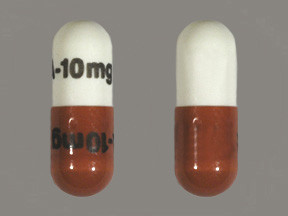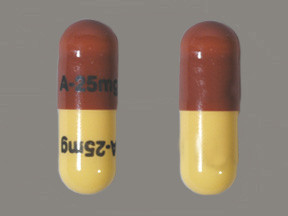ACITRETIN - ORAL
PHONETIC PRONUNCIATION: (A-si-TRE-tin)
COMMON BRAND NAME(S): Soriatane
GENERIC NAME(S): acitretin
Uses
USES: This medication is a retinoid used in the treatment of severe psoriasis and other skin disorders in adults.
How to use ACITRETIN - ORAL
HOW TO USE: Read the Medication Guide provided by your pharmacist before you start using acitretin and each time you get a refill. If you have any questions regarding the information, consult your doctor or pharmacist. Read and complete the Patient Agreement and Informed Consent document before taking this drug. Take this medication by mouth exactly as prescribed, usually once a day with your main meal. The dosage is based on your medical condition and response to therapy. Do not take this more often or increase your dose without consulting your doctor. Your condition will not improve any faster but the risk of side effects may increase. It may take 2 to 3 months before the full benefit of this medication is seen. Use this medication regularly in order to get the most benefit from it. Remember to use it at the same time each day. Since this drug can be absorbed through the skin and lungs and may harm an unborn baby, women who are pregnant or who may become pregnant should not handle this medication or breathe the dust from the capsules.
Side Effects
Precautions
Interactions
Overdose
Images
Reviews
Faq for ACITRETIN - ORAL
Acitretin is prescribed to treat severe cases of psoriasis, a chronic skin condition characterized by red, scaly patches on the skin.
Acitretin belongs to a class of medications called retinoids. It works by suppressing the growth of skin cells and reducing inflammation, which helps to control the symptoms of psoriasis.
The effects of acitretin can be seen within 2 to 4 weeks of starting treatment. However, significant improvement in psoriasis symptoms may take several months.
The common side effects of acitretin include dry skin, chapped lips, dry eyes, hair loss, increased sensitivity to sunlight, muscle and joint pain, and elevated cholesterol and triglyceride levels. It is important to report any severe or persistent side effects to your doctor.
Acitretin should be taken exactly as prescribed by your doctor. Usually, it is taken once daily with food or a high-fat meal to enhance its absorption. It is essential to avoid alcohol during treatment with acitretin as it can increase the risk of serious liver problems.
No, acitretin should not be taken during pregnancy or if there is a possibility of becoming pregnant. It can cause severe birth defects, and women of childbearing age are required to use effective contraception both during and for three years after stopping the medication.
Yes, acitretin may interact with certain medications, including oral contraceptives, tetracycline antibiotics, methotrexate, and certain psychiatric medications. It is important to inform your doctor about all the medications you are taking to avoid potential drug interactions.
Warning
WARNING: Do not use this medication if you are pregnant or planning to become pregnant within 3 years of stopping this drug because it has caused serious birth defects. Use 2 effective birth control methods starting 1 month before taking this medication and at least 3 years after treatment has stopped. Do not use "minipills" (non-estrogen-containing pills) for birth control because they may not work as well with this drug. Females who are able to have children must not use this medication unless the following requirements are met: test negative on 2 pregnancy tests (they should be taken 1 week before starting this drug or at least 11 days after the last act of unprotected sexual intercourse); start therapy within 7 days of taking the second pregnancy test; present severe psoriasis and other treatments cannot be used; receive oral and written information on using 2 methods of birth control while taking this drug and for 3 years after stopping it; aware of the dangers of birth control failure and use during pregnancy; understand and correctly follow all birth control requirements and instructions including monthly pregnancy tests during treatment and every 3 months for 3 years after treatment has stopped. Do not drink alcohol while using acitretin and for 2 months after stopping it because alcohol causes this drug to stay in the body longer. It is not known if traces of this drug found in semen of male patients pose a risk to the unborn baby during use or after treatment has stopped. Acitretin may rarely cause serious (possibly fatal) liver disease (hepatitis) and increased fluid pressure on the brain (pseudotumor cerebri). If you notice any of the following unlikely but serious side effects, get medical help right away: yellowing eyes/skin, dark urine, persistent nausea/vomiting/loss of appetite, severe stomach/abdominal pain, unusual tiredness, persistent/severe headache, or vision changes (such as blurred/double vision, decreased vision). Acitretin has also been linked to pancreatitis (inflammation of the pancreas). Notify your doctor right away if you develop persistent, lower abdominal pain. Rarely, acitretin may cause serious mental/mood changes, even after stopping the medication. Get medical help right away if you have symptoms such as depression, irritability, aggressive or violent behavior, or thoughts of suicide.
Disclaimer
IMPORTANT: HOW TO USE THIS INFORMATION: This is a summary and does NOT have all possible information about this product. This information does not assure that this product is safe, effective, or appropriate for you. This information is not individual medical advice and does not substitute for the advice of your health care professional. Always ask your health care professional for complete information about this product and your specific health needs.


No Reviews Yet